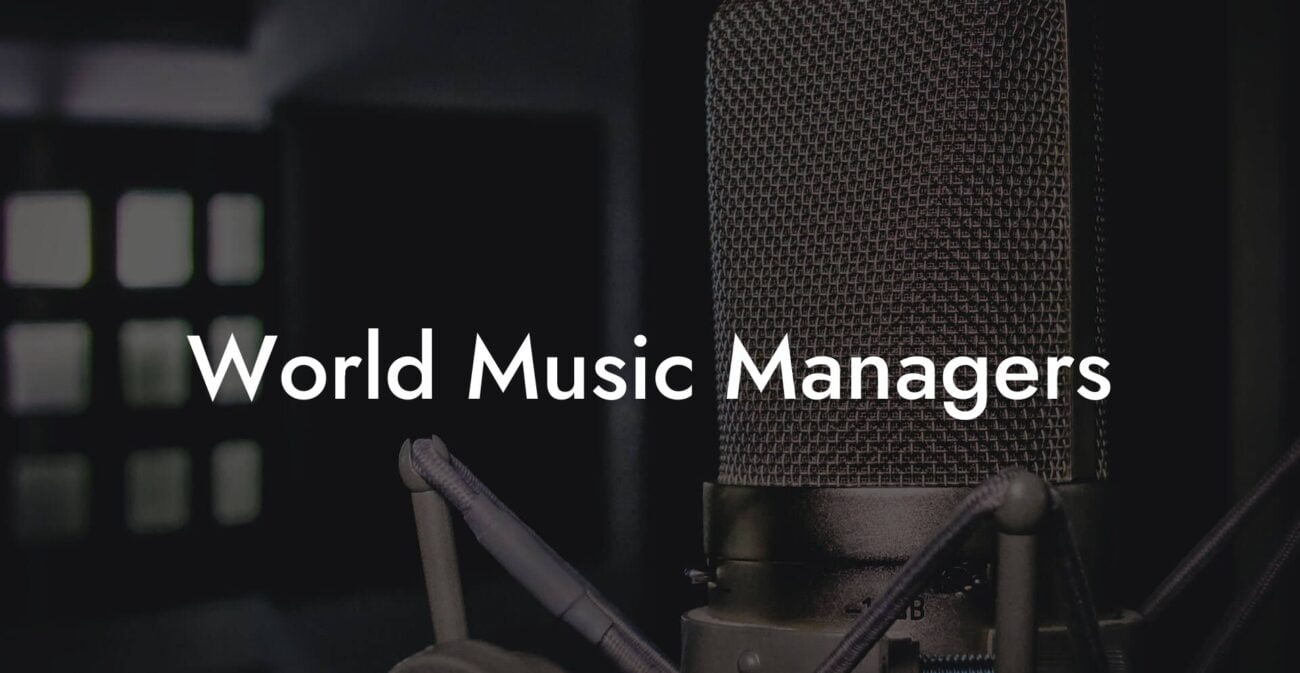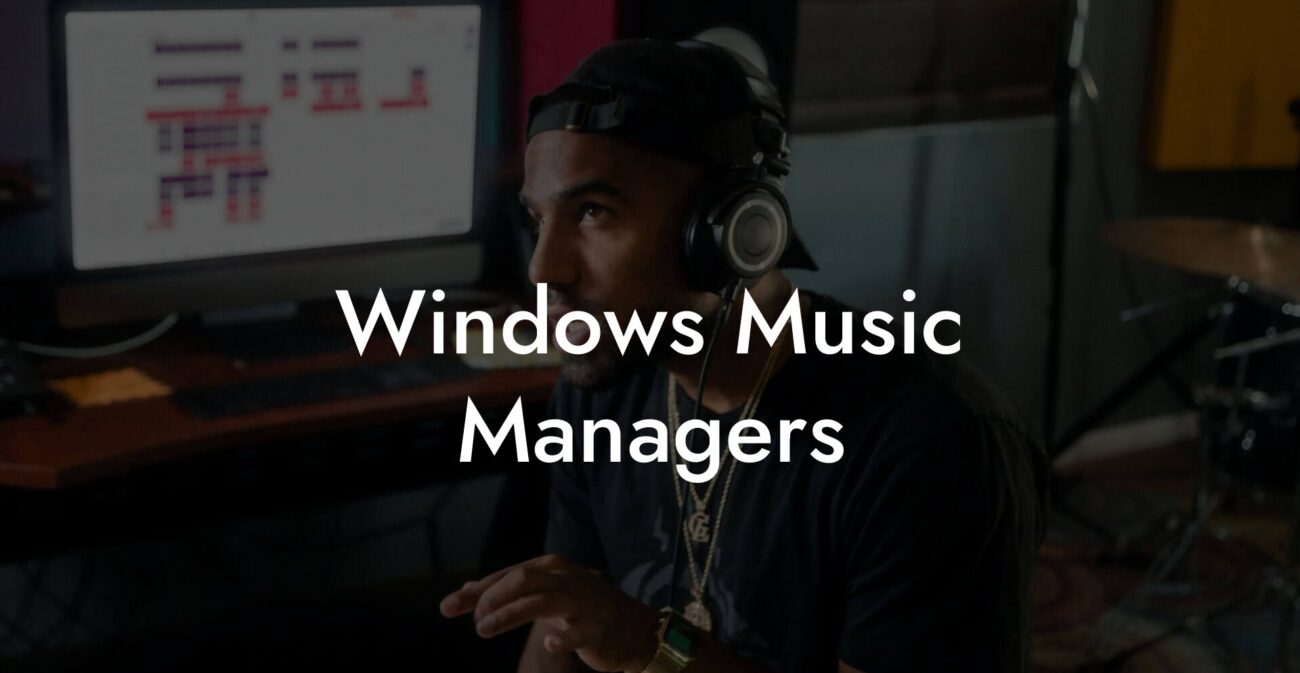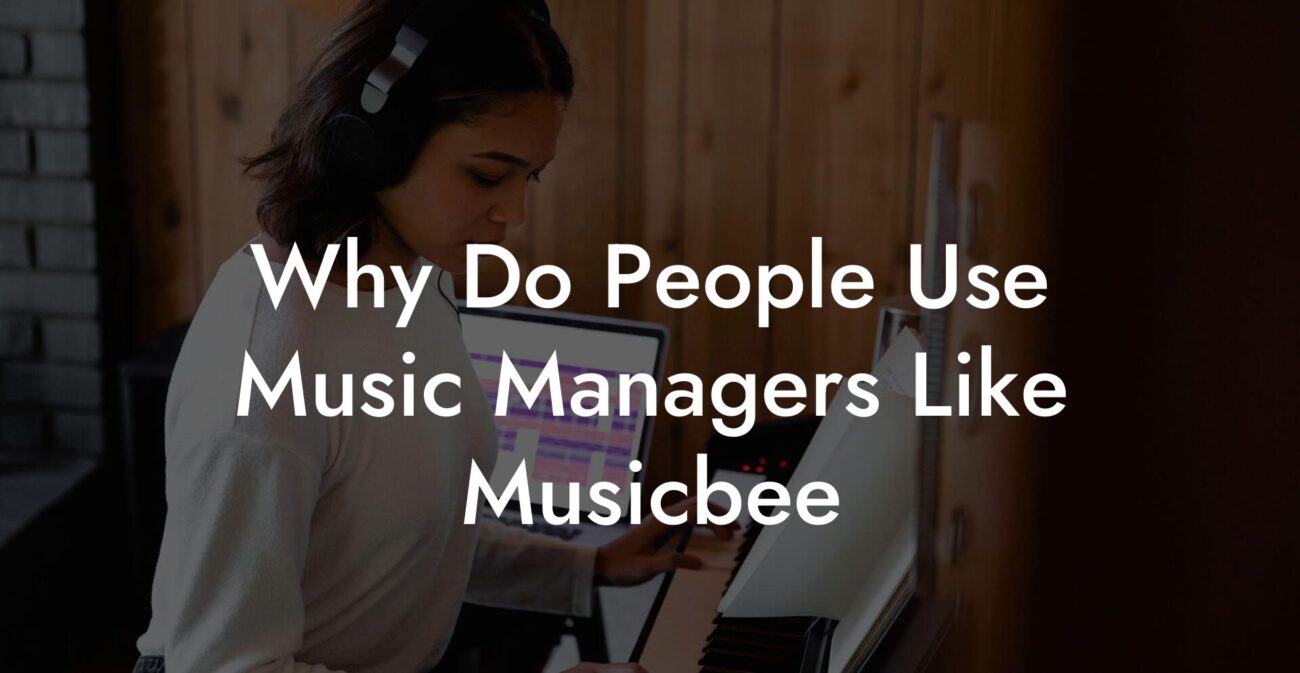Ever wondered what types of managers an artist might have in the music industry? Picture this: you’re a Gen Z or millennial musician stepping into a world where creativity meets business—a realm where your next hit song isn’t the only thing to master. From booking gigs to crafting dazzling stage presences, the right managers can be the secret sauce behind your success. In this deep dive, we’ll unpack the many flavors of managers, their quirky roles, and how they collaborate to elevate your career, all with a humorous spin and a relatable vibe that speaks your language.
Looking to write your next song? Transform your creative ideas into songs that people will love, and skyrocket your music career with Lyric Assistant. The perfect songwriting assistant. Find out more →
Quick Links to Useful Sections
- Understanding the Managerial Maze in the Music World
- The Cornerstone: The Personal Manager
- What Does a Personal Manager Do?
- Qualities of a Great Personal Manager
- Financial Gurus: The Business Manager and the Accountant
- Business Manager: Your Financial Strategist
- Accountant: The Numbers Whiz
- The On-Tour Heroes: Tour Managers and Booking Agents
- Tour Manager: The Maestro of the Road
- Booking Agent: The Deal Closer
- The Creative Collaborators: A&R Representatives and Creative Directors
- A&R Representatives: The Talent Scouts
- Creative Directors: The Visionaries
- The Digital Age Allies: Social Media and Marketing Managers
- Social Media Manager: The Digital Dynamo
- Marketing Manager: The Storyteller
- Getting Real with Managerial Roles: Balancing Artistry and Business
- The Evolution of Management in the Music Industry
- Cultivating a Dream Team: Selecting the Right Managers for Your Unique Style
- Identifying Your Needs
- Evaluating Experience and Track Record
- Ensuring Alignment of Vision and Values
- Building Open Channels of Communication
- The Impact of Technology on Music Management
- Data-Driven Decision Making
- Online Collaboration Tools
- Automation in Administrative Tasks
- Success Stories: How Top Artists Leverage Their Management Teams
- Case Study: The Indie Sensation
- Case Study: The Crossover Hit Maker
- Resources and Community Support: Your Next Steps
- Industry Trends: The Future of Music Management
- Bringing It All Together: A Symphony of Management Excellence
- FAQs: Your Music Management Questions Answered
- The Final Word: Embracing a Collaborative Future
Understanding the Managerial Maze in the Music World
Navigating the music industry can feel like trying to assemble IKEA furniture without the manual—it’s complicated, a little chaotic, and you’re likely to end up with a few extra pieces you’re not quite sure what to do with. Yet, the power of having well-oiled management machinery behind you is undeniable. Managers are the unsung heroes who dream big, hustle harder, and ensure that your creative genius doesn’t drown in the business of making it big.
In this guide, we’re pulling back the curtain on the different types of managers an artist might have in the music industry, exploring their roles, responsibilities, and even some behind-the-scenes quirks. Whether you’re a songwriter keen on penning the next chart-topping lyric (hello from Lyric Assistant!) or an aspiring musician ready to break through the noise, knowing these roles can empower you to choose and work with managers who truly get your vibe.
The Cornerstone: The Personal Manager
Let’s kick things off with the personal manager—the captain of your career ship. Think of them as the visionary coach who not only dreams alongside you but practically lives your dream. Their job is like that friend who believes in you way more than you believe in yourself—only, instead of motivational memes, they bring business plans.
What Does a Personal Manager Do?
The personal manager is your right-hand person who oversees nearly every aspect of your career. Their responsibilities include:
- Career Strategy and Planning: They help map out your short- and long-term goals, ensuring your creative vision aligns with business realities.
- Networking and Industry Connections: From introducing you to record labels to linking you with producers and other artists, they create the opportunities that can change the course of your career.
- Day-to-Day Management: Whether it’s scheduling meetings, negotiating deals, or coordinating with other managers, they keep the wheels turning smoothly.
- Crisis Management: When things go sideways (and they often do), your personal manager is the calm voice in the storm, ensuring damage control and a quick recovery.
In the fast-paced world of music, where trends change faster than your favorite streaming playlist, a personal manager helps ensure that your artistic integrity and career momentum remain in sync.
Qualities of a Great Personal Manager
If you’re looking for the perfect personal manager, here are some traits to keep an eye out for:
- Industry Know-How: They should have deep roots and a robust network within the music business.
- Adaptability: The industry is always in flux, so flexibility and the ability to pivot quickly are crucial.
- Trustworthiness: Since they’re involved in nearly every decision, a foundation of trust is non-negotiable.
- Communication Skills: Delivering clear, honest, and sometimes tough feedback without dampening your creative spark is an essential part of their role.
Financial Gurus: The Business Manager and the Accountant
Now that we’ve met the visionary, let’s talk money—because even the most genius musician needs someone to ensure the bank account is as robust as the fan base. Enter the business manager and their often inseparable sidekick, the accountant.
Business Manager: Your Financial Strategist
The business manager is your go-to financial strategist. Their role is to ensure that every cent you earn is managed wisely to fuel your creative journey. They help with:
- Budgeting and Financial Planning: Crafting a financial roadmap that supports recording sessions, tours, and marketing campaigns.
- Contract Negotiations: Reviewing deals like record contracts, licensing agreements, and merchandising terms to ensure your economic interests are fully protected.
- Revenue Management: Overseeing income streams from streaming, touring, royalties, and merchandise to maximize profitability.
- Tax Planning and Compliance: Keeping you in good standing with the tax authorities, always a bonus when you’re busy creating art.
Working in tandem with your personal manager, the business manager ensures that your creative endeavors translate into financial stability—and yes, sometimes even that dream upgrade from a dorm room to a more secure and inspiring workspace.
Accountant: The Numbers Whiz
Underneath the umbrella of business management sits the often overlooked but indispensable accountant. This wizard of numbers handles the nitty-gritty:
- Bookkeeping: Recording all financial transactions and ensuring that nothing slips through the cracks.
- Financial Reporting: Providing clear reports that help you understand where your money is coming from and where it’s going.
- Tax Filings: Ensuring tax returns are submitted accurately and on time to avoid any unwanted visits from the taxman.
- Financial Compliance: Keeping you adherent to legal regulations, which is key in an industry where the numbers can get as wild as the creative ideas!
Together, the business manager and accountant provide a solid financial backbone, allowing you to focus on what you do best—creating music and writing the lyrics of your life (for which Lyric Assistant is here to help!).
The On-Tour Heroes: Tour Managers and Booking Agents
When it comes to the road, the music industry has its very own logistical dream team. Tour managers and booking agents are the unsung heroes behind every sold-out gig, ensuring that touring, travel, and performances run as smoothly as your favorite beat drop.
Tour Manager: The Maestro of the Road
The tour manager is your best friend on tour—kind of like that reliable friend who knows how to pack a suitcase perfectly and always has snacks for the ride. Their role includes:
- Scheduling: Coordinating dates, venues, and travel arrangements to ensure a well-organized tour schedule.
- Logistics Coordination: Overseeing everything from accommodation to transportation, ensuring that every aspect of your tour is executed flawlessly.
- Crisis Management: Handling the unexpected with grace—be it a last-minute venue change or a van breakdown on the highway.
- Team Coordination: Working closely with your personal manager, business manager, and other crew members to create a seamless touring experience.
With a skilled tour manager, the chaos of life on the road transforms into a well-orchestrated symphony of events, letting you channel all your energy into captivating performances.
Booking Agent: The Deal Closer
If the tour manager is the conductor, consider the booking agent as the lead promoter who fills up the concert halls. They are responsible for:
- Securing Gigs: Finding and negotiating performance opportunities that match your style and career aspirations.
- Venue Negotiations: Liaising with venue owners and promoters to secure the best deals for your shows, covering everything from fees to rental specifics.
- Networking: Connecting with festival organizers, event planners, and other key players in the live music realm.
- Tour Planning Assistance: Collaborating with your tour manager to ensure that your live performances are strategically placed along your touring route.
When your booking agent is in top form, your calendar fills with exciting opportunities that not only boost your exposure but also help build a loyal fan base that travels with you from city to city.
The Creative Collaborators: A&R Representatives and Creative Directors
The creative side of the music industry relies on mentors and visionaries who help shape your artistic journey. Two key players here are A&R representatives and creative directors.
A&R Representatives: The Talent Scouts
A&R (Artists and Repertoire) reps are like those cool, savvy friends who recognize pure talent from miles away. Their role is to:
- Discover Talent: They scout for fresh voices and innovative sounds, often playing a pivotal role in bringing undiscovered artists into the spotlight.
- Creative Guidance: Offering insights into musical direction, songwriting, and production to refine your sound while maintaining your unique style.
- Facilitating Record Deals: Connecting you with record labels and helping negotiate contracts that can serve as a launch pad for your career.
With a keen understanding of industry trends and a passion for music, A&R reps are the catalysts who transform raw talent into market-ready art.
Creative Directors: The Visionaries
On the flip side, creative directors are the gatekeepers of your brand and image. Their job includes:
- Brand Development: Shaping your public persona—from your stage look to your social media aesthetic—so that it resonates with your target audience.
- Visual and Artistic Direction: Overseeing album artwork, music videos, and live show visuals to create an immersive experience that goes beyond the music.
- Strategic Campaigns: Collaborating on marketing and promotional strategies that ensure your artistic vision is communicated effectively to fans and industry stakeholders alike.
In a world where visuals speak as loudly as melodies, having a creative director who understands your unique vibe can be the ultimate game-changer.
The Digital Age Allies: Social Media and Marketing Managers
In today’s world, where an Instagram post can make or break your career, digital savviness is indispensable. Enter social media and marketing managers—the gurus of online presence.
Social Media Manager: The Digital Dynamo
If you love scrolling through TikTok and Instagram for creative inspiration, your social media manager is the pro behind the scenes crafting that narrative. Their role is to:
- Content Strategy: Plan and execute a social media calendar that keeps your audience engaged and your profile buzzing with activity.
- Brand Interaction: Engage with fans, manage comments, and foster a community around your music.
- Analytics and Reporting: Monitor engagement metrics to continually refine strategies and keep your digital footprint on point.
- Campaign Creation: Design and run online campaigns, giveaways, and collaborations with influencers that drive awareness and boost your brand.
With a dedicated social media manager, your digital presence transforms from a mere online profile into a thriving hub of interaction that not only promotes your music but also builds lasting relationships with your audience.
Marketing Manager: The Storyteller
While the social media manager focuses on the digital realm, the marketing manager tells your story in a way that captivates both traditional and online audiences. Their responsibilities include:
- Campaign Strategy: Crafting marketing campaigns that blend online trends with real-world reach to create buzz around your releases.
- Media Relations: Securing interviews, features, and press coverage that help build your profile in the broader media landscape.
- Audience Targeting: Employing data-driven insights to target the right demographics with a messaging that speaks directly to their hearts (and playlists).
In an era where the digital and physical worlds collide, having a marketing manager who understands both realms is crucial for elevating your presence and ensuring your music reaches the ears it deserves.
Getting Real with Managerial Roles: Balancing Artistry and Business
It might seem like a lot—personal management, business oversight, tour logistics, creative vision, and digital marketing—all working in tandem for one artist. The truth is, not every musician has a full entourage, but understanding these roles helps you figure out what you need as your career evolves. More often than not, especially when starting out, you may wear multiple hats yourself until you can bring on specialists.
As you hone your craft and build your brand, the idea is to gradually delegate tasks so you can focus more on the creative parts—like writing those lyrics that resonate with your soul (and thanks to Lyric Assistant, that process becomes even smoother). The balance between artistry and business is a delicate dance, and the right set of managers can make all the difference in ensuring you remain authentically creative while effectively navigating the industry’s complex machinery.
In early career stages, many artists cut deals with agencies or management teams that combine several roles under one umbrella. As your career scales, specialists become invaluable, giving you the freedom to focus on your music while experts handle the rest.
The Evolution of Management in the Music Industry
The role of managers in the music industry has evolved dramatically over the decades. In the era of vinyl, radio airplay, and MTV, traditional management was all about getting your record on the airwaves and securing those prized album placements. Fast forward to the digital age, and the game has completely changed—social media, streaming platforms, and online marketing have introduced new challenges and opportunities.
Today’s managers must juggle both time-tested practices and innovative strategies to stay ahead of trends. They need to be as comfortable with negotiating record deals as they are with managing viral social media campaigns. This new breed of managers blends creativity with technology, ensuring that artists not only produce great music but also build lasting relationships with their fans online.
As you consider your journey, it’s clear that the right management team is as dynamic and evolving as the industry itself. Whether you’re launching a debut single or planning an international tour, the expertise behind the scenes is critical in keeping you ahead of the curve.
Cultivating a Dream Team: Selecting the Right Managers for Your Unique Style
Building your management team is akin to assembling the ultimate squad for a championship game. It’s not just about filling roles; it’s about choosing a group of professionals who understand your unique vision and share your passion for music. Here are some key considerations when curating your dream team:
Identifying Your Needs
Every artist’s career is unique, and so are the needs. Ask yourself: what stage am I at? Do I need a full-time personal manager, or can I start with a part-time business manager? Perhaps I need someone who can handle the fast pace of digital marketing, or maybe my touring schedule demands a seasoned tour manager. Defining your needs upfront will help you target the right professionals.
Evaluating Experience and Track Record
When looking for managers, seek those with a proven track record in the music industry. It’s crucial to check references, review their previous projects, and get a sense of how they handle crisis management and day-to-day operations. Experienced professionals bring invaluable insights that can help you avoid common pitfalls.
Ensuring Alignment of Vision and Values
A successful manager isn’t just about the numbers; they must understand your artistic vision and align with your values. Whether you’re all about innovative soundscapes or storytelling through witty lyrics, your manager should share your excitement and support your creative risk-taking.
Building Open Channels of Communication
Transparency and trust are the cornerstones of any strong working relationship. Establishing clear communication channels from the get-go ensures that you and your managers stay in sync, making it easier to tackle challenges and celebrate wins together.
As you weigh these factors, remember that this is a partnership—a dynamic synergy that evolves as your career blossoms. The right team can help amplify your strengths, navigate industry complexities, and ultimately keep the focus on what matters most: your music.
The Impact of Technology on Music Management
There’s no denying that technology has reshaped every industry, and music management is no exception. The digital revolution has given rise to tools and platforms that allow managers to work smarter, not harder. Let’s take a look at some of the technological advances that are changing the game:
Data-Driven Decision Making
Today’s managers have access to robust analytics that can provide insights into fan behavior, streaming trends, and social media engagement. This data-driven approach means that strategic decisions—from tour dates to marketing campaigns—can be precisely targeted for maximum impact.
Online Collaboration Tools
Whether it’s managing project timelines, scheduling meetings, or coordinating on-the-fly changes during a tour, creative collaboration tools have made it easier for managers to work together regardless of geographic location. Tools like Slack, Trello, and Asana have transformed the way teams operate behind the scenes.
Automation in Administrative Tasks
The mundane, time-consuming tasks—budget tracking, email follow-ups, and even some aspects of social media management—are increasingly being automated. This frees up your management team to focus on the creative and strategic parts of your career.
As these technologies become standard practice, the efficiency of your management team is bound to skyrocket, leaving you more time to hone your craft and connect with your fans.
Success Stories: How Top Artists Leverage Their Management Teams
Let’s take a moment to draw inspiration from some of the biggest names in music, whose careers have been propelled by stellar management teams. Although each journey is unique, recurring themes show that success often hinges on smart partnerships and strategic delegation.
Case Study: The Indie Sensation
Imagine a budding artist who started in a cramped apartment and performed at local open mics. With a passionate personal manager, a shrewd business manager, and a tech-savvy marketing team, they transformed from a local act into an internationally acclaimed artist. Their management team was instrumental in:
- Strategically scheduling tours that built momentum and introduced them to new markets.
- Leveraging social media trends to create viral moments and engaging content.
- Securing partnerships with brands that aligned with their ethos.
This holistic approach not only boosted their performance quality but also cemented their reputation as an artist who values both creative integrity and professional savvy.
Case Study: The Crossover Hit Maker
Another success story involves an artist known for blending genres and experimenting with new sounds. Their success came from a well-balanced team that included a creative director who crafted an unforgettable visual identity, a booking agent who secured high-impact events, and a business manager who turned performance revenue into reinvestments for innovative projects.
The common thread in these narratives? A tailored management approach that evolves with the artist’s journey, allowing for a harmonious blend of creativity and business acumen.
Resources and Community Support: Your Next Steps
Whether you’re just starting out or looking to elevate your career to the next level, tapping into resources and community support can be a game changer. Not sure where to start? Here are some actionable steps:
- Networking Events and Industry Conferences: Attend music festivals, seminars, and workshops where you can meet potential managers and learn from industry veterans. These events offer valuable networking opportunities and insights into current trends.
- Online Communities and Forums: Join music industry groups on social media platforms and specialized forums where artists and managers share insights, success stories, and job opportunities. Platforms like Reddit, Facebook groups, and LinkedIn can be treasure troves of information.
- Educational Resources: Enroll in music business courses or webinars that cover topics like contract negotiations, branding, and digital marketing. Knowledge is power, and understanding the business side can boost your confidence in working with your team.
- Mentorship Programs: Seek out mentorship from seasoned professionals who can guide you through the intricacies of building a management team and navigating the industry.
- Utilize Digital Tools: Leverage apps and platforms that help streamline management tasks. From digital calendars to financial planning software, the right tools can amplify the effectiveness of your management team.
Here at Lyric Assistant, we believe in empowering artists with the knowledge and tools to succeed. While we specialize in helping you effortlessly write the lyrics for your next hit, the right management support can transform those lyrics into a full-blown career.
Remember, the journey may be challenging, but you’re not alone—thousands of artists around the world are on the same quest. Embrace community support, continue learning, and never hesitate to surround yourself with people who share your passion and vision.
Industry Trends: The Future of Music Management
As the music industry continues to evolve in the digital age, so too do the roles and expectations of managers. Emerging trends such as virtual concerts, smart contracts on blockchain, and AI-powered data analytics are reshaping how managers operate and connect with audiences.
Look out for these major shifts:
- Virtual and Hybrid Events: With the rise of streaming and online engagement, tour managers and booking agents are expanding their toolkit to include virtual shows and combined live-stream experiences.
- Blockchain and Smart Contracts: For business managers, blockchain technology offers a new way to manage royalties transparently and fairly—cutting out the middlemen and ensuring that every cent reaches its rightful place.
- AI and Data Analytics: Managers are now using AI tools to predict trends, optimize touring schedules, and craft personalized marketing strategies that resonate with audiences on a granular level.
- Social Media Innovations: Social media and marketing managers are continually adapting to new platforms and algorithms, ensuring that your digital presence remains fresh and relevant.
Staying ahead of these trends isn’t just smart—it’s essential. The best management teams are those that are adaptable and willing to embrace new technologies that drive success.
Bringing It All Together: A Symphony of Management Excellence
At the end of the day, the diverse roles of managers in the music industry come together like instrument sections in a symphony—each one essential on its own, but truly magical when they collaborate. Whether it’s a personal manager steering your artistic journey, a business manager safeguarding your financial future, or a digital ace ensuring your online presence resonates, every role is a critical part of your overall success.
As you embark on your musical journey, remember that choosing the right management team can be transformative. It’s about finding the right mix—people who not only get your vibe but elevate it. By embracing a tailored, strategic approach to management, you can break through the noise and get your music heard on a global scale.
So, go ahead and take charge of your career. Build that dream team, leverage the latest tech, stay educated, and most importantly, keep creating those killer lyrics with a little help from Lyric Assistant. The stage is set, and your breakthrough moment is just around the corner!
FAQs: Your Music Management Questions Answered
Here are some frequently asked questions to help you navigate the complex world of music management:
1. What types of managers does an artist typically work with in the music industry?
Artists usually collaborate with several types of managers, including personal managers, business managers (and accountants), tour managers, booking agents, A&R representatives, creative directors, social media managers, and marketing managers. Each plays a unique role in helping to advance an artist’s career.
2. How can a personal manager impact my music career?
A personal manager is like a career coach—they help develop your long-term strategy, connect you with industry opportunities, and manage day-to-day decisions so you can focus on creating great music. Their guidance can be invaluable as you navigate the complexities of the music business.
3. What’s the difference between a business manager and an accountant?
While both roles deal with finances, a business manager focuses on strategic planning, budgeting, and contract negotiations. An accountant, meanwhile, handles detailed bookkeeping, tax filings, and daily financial record-keeping.
4. Why do I need a tour manager or booking agent?
Tour managers and booking agents are essential when it comes to live events. The tour manager ensures your tour runs smoothly—from scheduling to logistics—while the booking agent secures gigs and negotiates venue deals, allowing you to focus on delivering memorable performances.
5. How do digital managers like social media and marketing managers help my career?
These professionals manage your online presence, plan and execute digital campaigns, and interact with fans on social media. Their expertise ensures that your music reaches a wide audience in an increasingly digital world.
6. Can I handle some of these management tasks myself when I’m starting out?
Absolutely. Many emerging artists juggle multiple roles early in their careers. However, as your career grows, strategically delegating these tasks to specialists can help you focus more on your creative process.
7. How do I choose the right manager for my needs?
Research is key. Look for candidates with a strong track record, references, and, importantly, a shared vision for your career. Understanding your needs and clearly communicating them will help you form the right partnerships.
The Final Word: Embracing a Collaborative Future
As the curtain falls on our deep dive into the realm of music management, it’s clear that the best artists don’t operate in a vacuum. The right management team—whether it’s a visionary personal manager, a savvy business manager, or a digital guru—is like the perfect harmony backing your lead melody. Together, they help transform your passion into a sustainable career, ensuring that your creative vision is not only heard but celebrated worldwide.
Embracing a collaborative approach means continually evolving alongside your team, staying adaptable, and always being open to new trends and strategies. With the right guidance, the music industry can become a more navigable and inspiring space, where creativity meets opportunity.
Now’s the time to take those bold steps—expand your network, learn from industry veterans, and use tools like Lyric Assistant to focus on what you do best: writing mesmerizing lyrics that capture hearts and minds. Your journey toward a fulfilled, dynamic music career has already begun. Embrace it, celebrate every step, and compose your future with passion and purpose!














